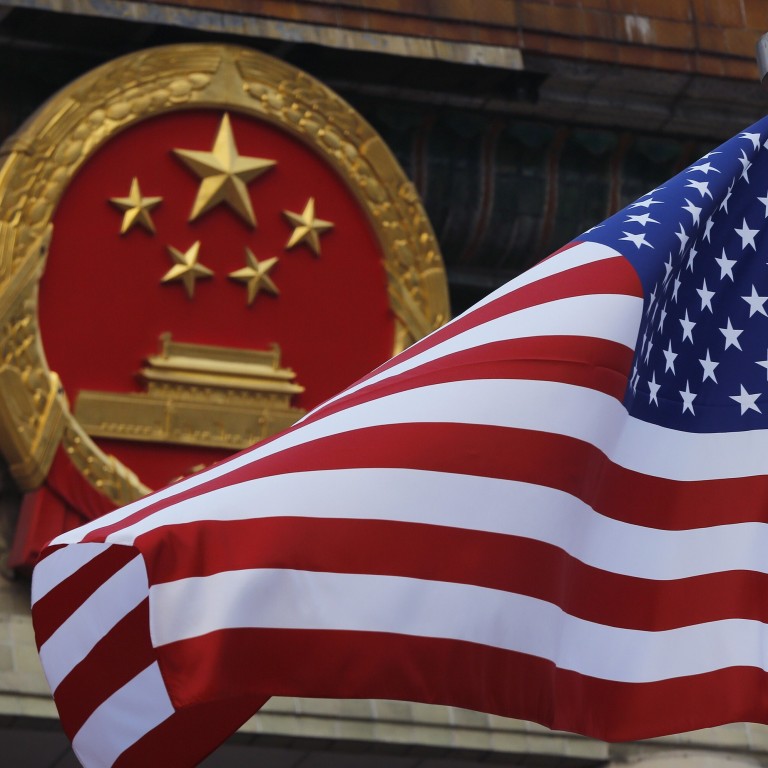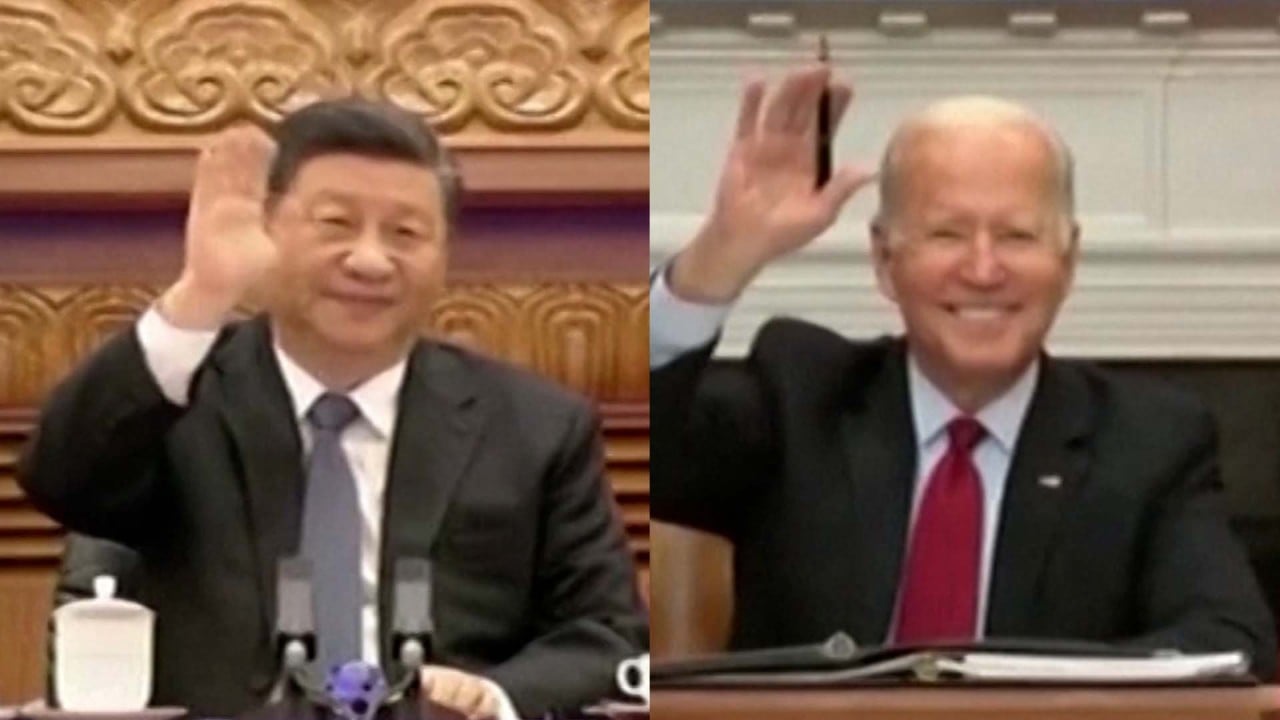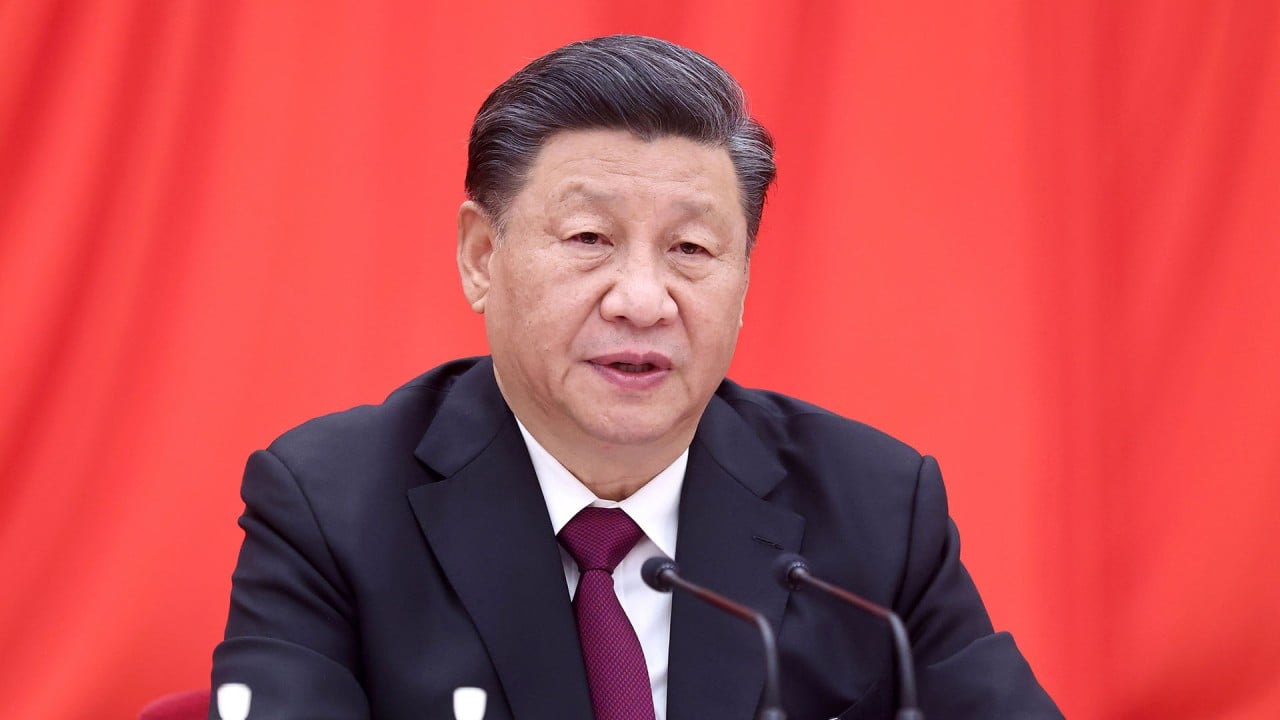
US panel on China policy recommends several steps to deter Beijing from invading Taiwan
- US-China Economic and Security Review Commission takes hard line, with chair saying ‘the Chinese government deepened its embrace of aggression … and coercion’
- Annual report’s analysis of challenges facing Beijing include China’s income inequality, technological dependence on the West and growing distrust overseas
The US government’s leading advisory panel on China policy urged Congress on Wednesday to deter mainland China from invading Taiwan by authorising and funding less vulnerable US bases in the Indo-Pacific, “large numbers” of ballistic and anti-ship missiles and more regional intelligence operations.
In an exhaustive 539-page annual report, the US-China Economic and Security Review Commission also called on lawmakers to ensure that US financial capital entering the mainland does not end up supporting China’s military-industrial complex or the Chinese Communist Party.
US should further restrict Americans’ investments in Chinese companies, panel says
“The Chinese government deepened its embrace of aggression, ‘Wolf Warrior’ behaviour and coercion, heightening concerns throughout the Indo-Pacific and elsewhere in the world about China‘s rise,” said Carolyn Bartholomew, the commission chair, said at a briefing about the report’s release. “As it grows increasingly belligerent in some places and bellicose in others, China‘s leaders have put the onus of improving relationships on the other party.”
The hard-line report, which reflects growing distrust of China’s motives across the US political spectrum, comes as tensions have ratcheted up over Taiwan. Even before a delegation of Republican lawmakers visited Taipei last week, China had sent scores of fighter jets and nuclear-capable bombers in recent weeks into the island’s air defence zone.
“We want to prevent that conflict,” said Alex Wong, another commissioner.

02:25
Xi Jinping and Joe Biden call for mutual respect and peaceful China-US coexistence
Chinese Foreign Ministry spokesman Zhao Lijian said earlier this week that China firmly opposed Washington’s “wrong words and actions” concerning Taiwan.
“Over the past 40 years or so, the US statements on the Taiwan question have lost shape, turned sour and retrogressed,” he added. “China‘s reunification is an unstoppable historical trend.”
The commission, an independent government panel set up in October 2000, reports directly to Congress and the White House. Wednesday’s report grew out of hearings involving some 75 experts from government, business and research organizations over the past year. The 11 commissioners behind this year‘s report are not lawmakers, but are appointed by Congress.
One former US government official characterised the commission and its reports over the past two decades both as a useful catalogue of thorny bilateral issues and a barometer of Washington‘s view of China. “It’s been sort of an escape valve to complain about China after it entered the global trading system,” the ex-official said, requesting anonymity given continuing work in Washington. “But I don’t think it’s ever had much serious impact on US policy.”

The report acknowledged China’s undeniable successes, including elevating hundreds of millions of its citizens out of poverty. But in the centennial year of the party’s founding, it added, this has emboldened party leaders and fuelled their belief in China’s supposedly inexorable rise.
The bravado also masked some deep insecurities, the commission suggested, as expectations rise in advance of 2049, modern China’s centenary: beneath the party’s belief in its own pre-eminence is a fear that missteps could jeopardise its domestic control and global influence. And rather than express satisfaction with their accomplishments, party leaders appear focused on threats from “enemy forces” at home and abroad, it added.
The report reviews a range of challenges Beijing faces. Domestically, those include rising debt, income inequality, demographics, still-significant technological dependence on the West and looming fears over corruption and how much its people believe party ideology.
Abroad, China faces growing distrust and opposition from a range of nations over its human rights record, economic coercion and “Wolf Warrior” diplomacy.
Do not give China a pass on human rights, protest group tells G20
“Political inability to admit failure and genuine belief in its own superiority limit China’s ability to address those same challenges,” the report said. “External pressure has increased CCP paranoia about the potential for external forces to amplify internal dissent and threaten its regime.”
On Thursday, the Chinese embassy in Washington called the report a waste of taxpayer money, and rebuffed the idea that the Communist Party is wary of admitting its shortcomings.
“The [CCP] has also experienced some missteps and setbacks in revolution, development and reform,” an embassy spokesman said. “The [CCP] has never been shy about its problems or covered up these mistakes. Instead, it has faced up to the problems, found out the causes and drawn wisdom and strength from them to move forward.”
In other recommendations, the commission called on Congress to assure that the US maintains nuclear superiority, strengthens export controls, reduces supply-chain vulnerabilities, expands and better coordinates entity lists and improves the policing of imports.
The report paid significant attention both to China’s growing footprint in Latin America and the Caribbean, Washington’s traditional backyard, and to its assessment of China’s internal structure, pressure points and political culture.
“Through a widespread propaganda campaign, it has promoted a triumphalist narrative while omitting any mention of the CCP’s serious shortcomings and heavily censoring dissenting opinions,” it said. “The CCP’s triumphalism derives both from a genuine belief in its own superiority and from the need to sustain its authoritarian system.”

01:09
Chinese Communist Party resolution cements Xi Jinping leadership, putting him on par with Mao
It also questioned Xi’s claims that he had achieved a signature policy goal: the eradication of extreme poverty across China.
State media outlets have hailed Xi’s supposed victory over extreme poverty as a crowning achievement of his rule. It was cited in a rare Communist Party “historical resolution” last week that is expected to propel Xi to a third term as China’s leader.
“The metrics, methodology and accuracy of the CCP’s assertion of victory over extreme poverty have met with considerable scepticism among outside observers,” the report said. “Notably, Chinese policymakers do not count any urban residents as being poor.”
According to the World Bank, 60 per cent of China’s population was urban in 2020.
The report also devoted a full chapter, “Hong Kong Government Embraces Authoritarianism”, to the changes in Hong Kong society since the implementation of the national security law almost 17 months ago.
This section said that Hong Kong’s judiciary has been stripped of its former independence, that the local authorities now strictly censor films and are dismantling once-independent media organizations.
China’s Communist Party backs Xi Jinping’s stand on Hong Kong, Taiwan
The government can now issue exit bans to stop individuals from leaving the city, the report said, though it added that more than 87,000 residents had left Hong Kong since the national security law took effect.
It also said that Hong Kong’s schools have become entangled in the new political environment.
“Changes to Hong Kong’s educational curricula under the national security law now require teachers to promote the CCP’s interpretation of history, and authorities are using these new powers to fire them for unapproved speech,” the report said.
“Educators are forced to distort reality and history to portray the party in a positive light,” it added.
The USCC report was released as lawmakers on another China-focused panel, the Congressional-Executive Commission on China, warned that democracies were failing to counter efforts by Beijing to export its censorship regime and surveillance technologies to other parts of the world.
“The speed of [China’s] technological development and deployment is outpacing the response of democratic governments to monitor it, to understand it, to respond to it [and] to set standards for it,” Senator Jeff Merkley, the Oregon Democrat who chairs the CECC, said at a commission hearing on Wednesday.
Additional reporting by Owen Churchill


